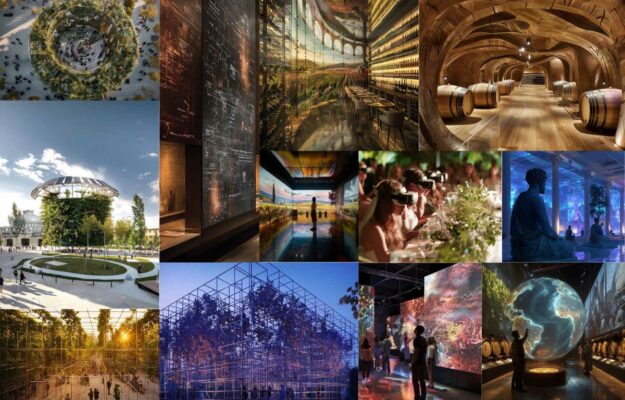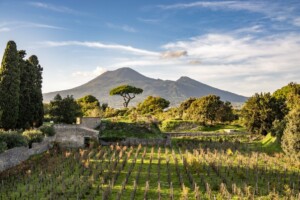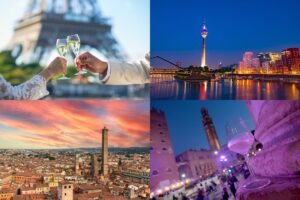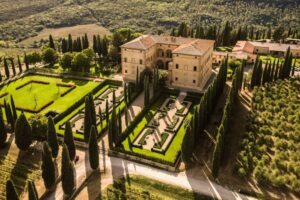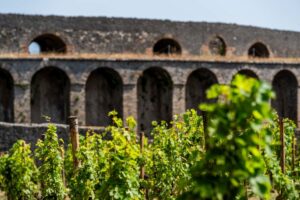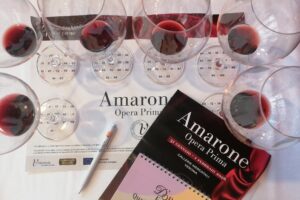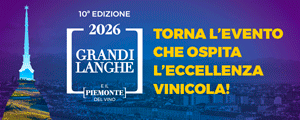“Wine has changed humankind more than humankind has changed wine”. This is the guiding quote - attributed to British poet, painter, and engraver William Blake (1757–1827) - will open the journey of Verona’s “non-Wine Museum”, currently known as “Muvin”, named after the Foundation established in Verona in 2022 to promote the creation of Italy first International-level Wine Museum, comparable to major European institutions such as the Cité du Vin in Bordeaux (France), WoW in Porto (Portugal), and Vivanco in Spain”, according to its promoters. This will be an international hub of culture, innovation, and territorial identity. It will not be called a “museum” and could open in less than two years, pending public funding approval to reach the total investment needed, estimated at 25 million euros.
Preliminary studies on the cultural and architectural concepts are ready, to be refined based on the location, Verona former “Icehouse” of the General Warehouses, now confirmed, and the economic sustainability is backed by detailed and meticulous analyses. The clear and stimulating “design” of the cultural hub - whose name is still under consideration - aims to create an innovative proposal where wine becomes an important “meta-theme” going beyond previous experiences. This vision was presented at the Scuola Grande di San Giovanni Evangelista in Venice during the third International Conference “Il Museo del Vino tra Cultura, Innovazione e Identità Territoriale” - “The Wine Museum between Culture, Innovation, and Territorial Identity”, recently organized by the Muvin Foundation and moderated by journalist and essayist Massimo Zanichelli. Some figures illustrate the projected economic impact of the future institution - 350,000 annual visitors, 12 million euros in revenue by the tenth year, and 130 new jobs - however, its cultural impact, arguably even more significant for Italian wine, is not limited to Verona’s geolocation. Verona was chosen for its central role in quality wine production, alongside the rest of Veneto, home to Vinitaly at Veronafiere, Italy’s most important wine fair for both domestic and international markets, and a representative city of Italian wine tourism within the “Great Wine Capitals” network (which reunites the main wine cities in the world to favor trade, touristic, and academic exchanges, ed).
The Muvin Foundation - a non-profit entity founded by a coalition of local economic associations - has received support from the Veneto Region, which funded the preliminary studies, and Senator Matteo Gelmetti, who brought the project to Rome to seek government funding. In Venice, Roberto Ciambetti, president of the Regional Council, confirmed - who ensured that “the Veneto Region is and will continue to be in the future” - joined by mp Ciro Maschio. “A hub dedicated to wine culture is strategic for the economic and touristic enhancement of the entire national wine sector. That is why we have initiated discussions with the Ministry of Economy and Finance to allocate resources in the current budget law to make this shared dream a reality”.
“The idea of Muvin stems from the collective power of institutions, universities, businesses, consortia, and producers, which unites and enhances our shared heritage - underlined in his speech president of Veronafiere Federico Bricolo - and, we work daily towards this same goal with Vinitaly and other wine-related activities”.
Diego Begalli, president of the Muvin Foundation and former vicerector of the University of Verona, reaffirmed the cultural and identity-driven mission of the new hub, unique in both national and international contexts, and its role in promoting Italy’s wine heritage. “We must create an initiative of great value for the country - said Begalli - in this challenging phase for wine, it is useful to identify key concepts, quality is a given prerequisite. Among these, I highlight: sustainability, though overused, identity, authenticity, innovation, research, and a quality dimension we can define as style and elegance. Authenticity is especially important, directly tied to territorial identity, though subject to innovation and research that support its evolution. Wine is rooted in the diversity of territories and producers; it is a cultural product, and a country like ours, a leader in the wine sector, must invest in it. The new hub will explore wine culture in a comprehensive way, far from the traditional museum concept. It will be participatory and foster intergenerational dialogue through innovation, education, and edutainment. After the startup phase, our goal is to become a nationally representative foundation, involving institutions, associations, and all other stakeholders, becoming a national wine center”.
Between 2023 and today - thanks to 300,000 euros in funding from the Veneto Region, initiated by Councilor Enrico Corsi - the Foundation, with expert collaboration, has completed the economic impact analysis, business plan, strategic positioning study, scientific content design for the visitor experience, and architectural design for interiors and exteriors, and, in the end, it also launched Winipedia, a section of the website www.fondazionemuseodelvino.it, featuring over 100 thematic entries on wine culture and economics curated by industry experts.
The wine hub will be part of a broader project combining cultural elements with educational experiences, wine tastings, a wine shop, restaurants, events, exhibitions, and more, as explained by Enrico Ghinato, manager and board member of the Muvin Foundation, illustrating the economic-financial sustainability of the initiative. “First, I want to dispel the myth that culture can’t sustain itself - started off Ghinato - it is possible to create models with economic and financial autonomy. Once the startup phase has overcome, the project could reach 350,000 visitors annually by rule, with an estimated employment impact of 80 to 130 new jobs. Initial revenue is projected at 6 million euros in the initial phase, it can potentially double within ten years. The initial investment for the Wine Museum is 25 million euros, with an additional 7 million euros in year six to maintain its appeal. A suitable investment for a sector as the wine one, which characterizes made in Italy economy in the world. The supporting financial structure counts on 8 million euros in capital from institutional partners (Veneto Region, Province, Municipality, Chamber of Commerce, Cariverona Foundation, Veronafiere, and others); 7 million eurod from Invitalia, with 20% as a grant and 80% at a subsidized 1.5% interest rate with a 4-year amortization; and, to arrive to a total of 10 million euros in non-repayable government grants. We supposed a structure based on two societies. One, which will maintain the control of the initiative, will be fully institutional, owning the investment and intellectual property. The second, on the contrary, mixed public and private, responsible for operations and business plan execution, paying royalties for cultural aspects, employment maintenance, and revenue development to ensure the continuation.
The initiative will be fundamental to develop a new kind of tourism in Verona, that of food and wine tourism, which supports the deseasonalization of visitor flows and improves visitor quality. “Based on current tourism flows - explained Francesco Pecci, economist and head of Economics Living Lab, a University of Verona spin-off, entrusted with the evaluation of economic impact of the Wine Museum of Verona - we estimate 350,000 annual visitors, generating 700 million euros in value, considering both museum setup investments and visitor-related economic impact. This will significantly boost wine tourism in Verona, with value creation extending to Veneto and the entire country”.
Costa Edutainment, Italy’s leading group in managing next-generation museums, has expressed interest in managing the initiative “hoping that the initiative will come to an end, because it is absent in Italian panorama, and is a trend which is perfectly aligned with international trends”, underlined ceo Giuseppe Costa after having shared in a video-contribution a reflection about the new models of edutainment and experiential museology inspired to international best practices. However, as recalled by Enrico Ghinato, for the assignment of the role, there will be a public bid.
Finally, also Dea Capital Real Estate, owner of the proposed site, has agreed to lease the property. The “Icehouse”, formerly the Specialized Refrigeration Station known as “La Rotonda”, was architecturally restored by Mario Botta and hosted Eataly until recently. Its location is strategic: near the Verona Sud highway exit, a few hundred meters from the city center and Porta Nuova station, and directly across from Veronafiere and Vinitaly. Regarding the architectural concept, developed by Studio Ardielli Fornasa Associati and Mirko Scaratti, Paola Fornasa explained how “the core idea was a harmonious integration of digital and analog experiences, physical spaces and objects, to build a narrative that actively engages the public. It is an ambitious and innovative project, unfolding in flexible, interactive spaces and blending into the urban context with a landscaped park designed for social interaction and collective enjoyment. The new hub will be a living bridge between architecture and the city: not just a container, but an open, dialogic space which transforms the visit into a participatory and memorable experience”.
Exhibition halls and common areas will guide visitors through a fluid journey where culture, design, and everyday life merge into an organic and engaging experience basing on a “content index” which was developed by an international expert committee headed by Steve Charters, professor at Burgundy Business School, Master of Wine, and authority in wine studies, who offered a meta-design perspective, placing the hub in an international context and highlighting its distinctive features. Alongside him, British historian and wine civilization and communication expert Graham Harding, a professor at Oxford. “We imagined a new place, which will narrate wine culture from a double point of view: on the one hand, its historical and cultural roots; on the other hand, contemporary challenges, making them a lens to interpret global themes, from geopolitics to climate change”, explained Charters. The colleague from Oxford made echo to him, who unveiled the guiding statement which will open museum path: “wine has changed humankind more than humankind has changed wine”.
The content index was developed by Capitale Cultura Group with support from wine sector consultants. “The new hub - explained Antonio Scuderi, ceo of Capitale Cultura Group and professor of Digital Heritage at Ied and Link University - is designed to offer an engaging and educational experience, enhancing both global and local dimensions through multi-layered storytelling tailored to different visitor profiles”.
The visitor journey will feature cutting-edge immersive and extended reality technologies, with specific solutions for children and people with disabilities. Targeted use of Artificial Intelligence will allow a high level of experience personalization, but also direct public participation. This technology will allow visitors to shape contents of some sections which will be real constantly evolving laboratories.
Copyright © 2000/2026
Contatti: info@winenews.it
Seguici anche su Twitter: @WineNewsIt
Seguici anche su Facebook: @winenewsit
Questo articolo è tratto dall'archivio di WineNews - Tutti i diritti riservati - Copyright © 2000/2026










